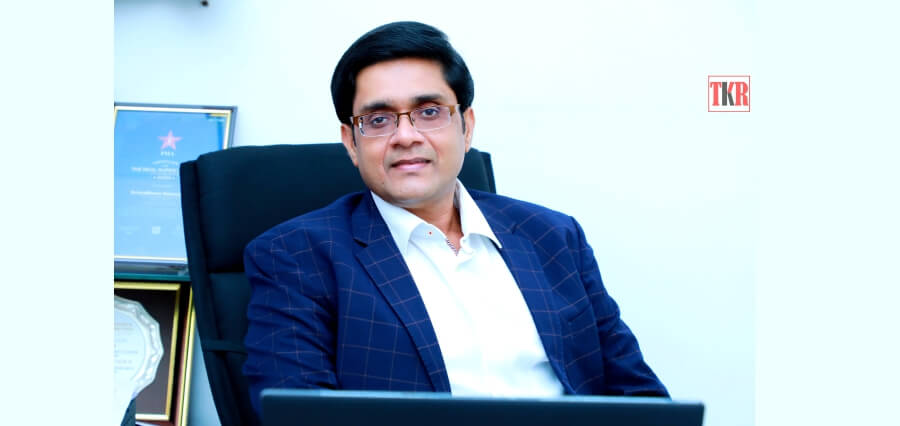Allied Health Professionals play a major role as primary health care providers and contribute a lot to primary health care services. They take part in all areas of social care and public health. They provide cross-boundary integration needed to deliver seamless services to patients and their caregivers, thus creating a model of social solidarity. The role of the AHP has grown in knowledge and competence with the evolution and specialization of medical care.
Allied Health Professionals, by definition, are individuals involved with the delivery of health or related services, with expertise in therapeutic, diagnostic, curative, preventive and rehabilitative interventions. They work in interdisciplinary health teams, including physicians, nurses, and public health officials, to promote, protect, treat and/or manage a person’s physical, mental, social, emotional and environmental health and holistic well-being.
Allied Health Professionals have the needed competency and skill set to bridge the demand gap on dependency on medical practitioners and limited specialist resources for early diagnosis and referral.
The WHO Global Strategy on Human Resources for Health has stated that Workforce 2030 (GSHRH) estimates a global shortfall of almost 18 million health workers by 2030, primarily in low-income and lower-middle-income countries, which indicates the need and demand for Allied Health Professionals globally.
Ample job opportunities are present for these professionals in government and private sectors both in the national and international arena, but the awareness about these job opportunities has still not reached the public, especially the rural people.
In India, the market size of the healthcare industry has more than doubled in the last five years. This change is being driven primarily by five factors:
- Expansion of healthcare infrastructure to Tier II and Tier III cities and rural areas
- Shift from curative to preventive care
- Rising geriatric population with about 300 million senior citizens expected by 2050
- Changing lifestyles and dietary patterns
- Rise of the health-tech ecosystem with a 45 per cent increase in total investment in health-tech startups.
The recent effort to acknowledge the importance of AHP in the healthcare delivery system is the ‘Allied and Healthcare Professions Bill, 2018,’ which was presented to the Rajya Sabha on Jan 31, 2020, and laid to the table of Lok Sabha on the same date. This bill recognises 53 professions of AHPs, bringing a working balance between medical professionals and AHPs and setting guidelines for AHPs’ education, services, and regulation. In many ways, this bill is a landmark in recognising the role of AHPs in the healthcare system.
The stress of modern lifestyle, rapid urbanisation, rising chronic non-communicable disease burden, and an increasing proportion of elderly from 5.3 per cent in 1950 to an estimated 10 per cent in 2020 and expected to increase to 19 per cent by 2050, have necessitated a change in delivering healthcare. Caring for patients with mental conditions, the elderly, and those in need of palliative services and enabling professional services for lifestyle change related to physical activity and diets all require a trained, allied health workforce. The Doctor Centric approach in the Health care Industry should become more centred towards Allied Health Professionals leading to Public health reform. There is a huge demand and supply gap for AHP’s, and the bridging of this is an immediate need of the hour in health care.
About the Author
Prof. Dr B. Sendilkumar is currently working as the Dean of Health Sciences at Vinayaka Mission’s Research Foundation-DU. Prof. Dr B. Sendilkumar is currently working as the Dean of Health Sciences at Vinayaka Mission’s Research Foundation-DU. He is a highly qualified and experienced academician with BDS, MBA, MPH, MPhil-HHSM, PhD, D.Litt, D.Sc, FISRO, FSASS, FRSPH[UK], FSAPHO(UK), MDP in HM & DA. He is also a qualified NABH Assessor, CII SR EHS Assessor, Certified Six Sigma Blackbelt in Quality, and is also ISO Lead Auditor for 9001:2015,14001:2015,45001:2018,21001:2018 Standards.
He has been serving as Head-transformation for the Vinayaka Mission Hospital, Salem. He also holds the valuable posts and memberships of being the Subcommittee member in CII Southern Region on Education, Skills & Job Creation for the year 2021-22, a Member of the CII Tamilnadu Healthcare Panel and a Member of the CAHO Startup-Tech Committee, District Sustainability Mentor for the schools and villages of Salem by the Mahatma Gandhi National Council of Rural Education, Govt. of India.
He has to his credit 30 Research Papers and Articles, 17 International and National patents, 2 Books and 4 Book chapters, 75 prestigious and honorary awards by International and National conclaves and many more achievements. He has been invited as a Guest speaker and Panellist in around 80 International and National events, Organized 65 International and National Conferences and 100+ webinars.









